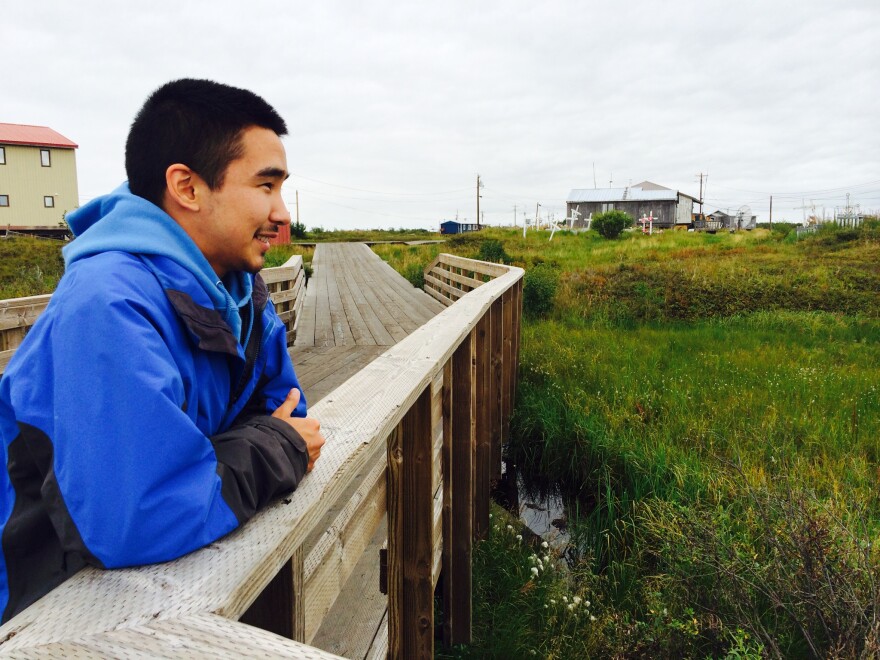Download Audio As college freshmen dig into their studies at the state’s universities this fall, more native faces are appearing in science and engineering classrooms. That’s thanks to the Alaska Native Science and Engineering Program, or ANSEP. Yup’ik students from the Yukon-Kuskokwim Delta are among them. Cody McIntyre is one of them. He’s from the village of Tuntutuliak, or as he calls it, Tunt, and he really likes Math.
“I don’t know it just came easy to me, it just made sense to me,” said McIntyre He says he wasn’t sure about his direction after high school until an ANSEP recruiter came to his school to promote the ANSEP program. He attended their STEM (science, technology, engineering and mathematics) ready program through Bethel Regional High School where he aced algebra 2 and calculus, as well as chemistry and physics. Now he’s starting his freshman year of college at UAA. He also participated in their summer bridge program where ANSEP selects 30 or so students from around the state who want to go into STEM careers. First they do a math class and then they do internships. He took a trigonometry class and did an engineering internship with the U.S. Forest Service. “Sometimes I’d go in the office, the supervisor’s office and work on office stuff, sometimes I’d go out in the field. It was like half and half. My supervisor wanted to give me a broad view of what the forest service does,” said McIntyre. Michael Ulroan, from Chevak is the Regional Director or the ANSEP High School Acceleration Academy at UAA. “They earn college credit and these courses are taught by university professors and it gives them that exposure to what it is like to be in a college environment. And not only that we build friendship and connections throughout the state,” said Ulroan. Ulroan has a Bachelor of Science degree in civil engineering and was an ANSEP student himself. Now he’s working on a master’s degree in Construction Management. He says not all rural Alaska schools offer higher level math and science classes needed to move on to careers in science and engineering, and ANSEP is critical for bridging that gap. It also helps with exposing students to how life works in urban centers and on college campuses before they get there. “Not too many people travel outside their village and unless that opportunity is there then how are you going to know where to go or what to do, and we provide those students first-hand experience,” said Ulroan. Cody’s mother, Carrie McIntyre, says that’s important for native students in villages. “A lot of students now-a-days are scared to leave their home town,” said McIntyre. She says many students in villages don’t have the support to move to an urban center and start college, and family obligations in the village sometimes keep them from going out into the world. But ANSEP helps them. And parents, she says, also have a responsibility. “I think us parents need to encourage our students to go and experience what outside life is about. Then they can always come back and do what they want to do after they go to school and graduate and get their degree,” said McIntyre. That’s what her son, Cody plans to do. The non-profit he wants to start – it would work on the huge issue of improving the water system in his village and others where there is no running water and people are still using the honey bucket. “The organization’s mission would be to provide clean drinkable water to everyone in the village by making a water system in the village and connect them to all the houses,” said McIntyre. And with his freshman year of college underway, he’s one step closer to achieving that goal.

